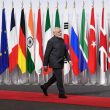The metaverse has been existing for quite some time, but only post Facebook’s rebranding to Meta, did the hype start gaining more steam. Mainstream brands are currently dipping their toes into the metaverse, primarily out of the fear of missing out on the next big thing in tech.
Even though the whole meta concept is trying to become mainstream, not much is certain in the metaverse. Question marks with respect to a host of factors like legality, safety, etc. still hang in the air. China recently, warned its metaverse trademark applicants that it would not necessarily approve all the 1600 applications filed. Apart from noting that virtual real estate was another scheme used by fraudsters, they also cited that companies were attempting to hoard trademarks without the purpose of use.
How is South Korea faring in the metaverse race?
Despite the uncertainty associated with respect to the future prospects, South Korea has placed a $185 million bet on the metaverse. In what is the latest development, South Korea’s Ministry of Science and ICT announced on Sunday a KRW 223.7 billion [$185 million] investment to build the nation’s metaverse ecosystem.
Per the split-up, the funds would be diverted towards the development of a decentralized creator economy, nurture talents via manpower training, and support firms developing VR/AR devices. In fact, a pan-government council is also working to tackle issues like personal information and intellectual property protection in the virtual space. The Ministry’s official press release [translated version] noted,
“The Ministry of Science and ICT focuses on creating a sustainable, expanded virtual world ecosystem based on public-private cooperation through the ‘Expanded Virtual World New Industry Leading Strategy’, and promotes inter-company collaboration, technology development, and regulatory innovation so that domestic companies can compete with global companies. The policy direction of active support has been presented, and full-scale implementation begins.“
The Ministry also supports the creation of a safe and reliable extended virtual world environment and intends to promote the establishment of the ‘Expanded Virtual World Ethics Principle’ as a self-regulatory norm.
Park Yun-Gyu, the head of the Information and Communication Policy Office of the Ministry of Science and ICT, emphasized,
“This year, it is important to create a world-class expanded virtual world ecosystem as a starting point for intensively nurturing the expanded virtual world, which is the core task of the Digital New Deal, as a new hyper-connected industry.”
This move doesn’t come as a surprise because the East Asian nation has been pro-metaverse of late. In January, the science ministry announced a five-year strategy to become a top-five global metaverse leader, and the latest fund allocation is very much aligned to their long-term goal.





